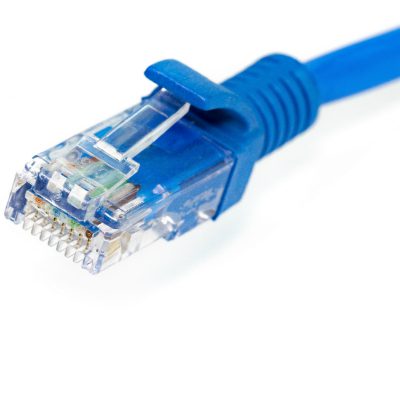[UPDATED] If two recent bills had passed, integrators in Texas could have been barred from pulling Power over Ethernet cabling that carries more than 50 watts of power.
Two bi-partisan bills that were introduced earlier this year in the Texas Senate and House of Representatives would have required any wire supplying more than 50 watts of power to be pulled only by a licensed electrician. Specifically, House Bill 1141 and Senate Bill 1004 define the specific types of exemptions, including:
“The design, installation, erection, repair, or alteration of Class 1, Class 2, or Class 3 remote control, signaling, or power-limited circuits, fire alarm circuits, optical fiber cables, or communications circuits, including raceways, as defined by the National Electrical Code, that operate at less than 50 volts and that are not capable of supplying or controlling more than 50 volt-amperes or 50 watts of power;”
So, to put that in plain English, it means any circuit that supplies or controls more than 50 watts of power would not be exempt from the new law, and therefore would require an electrical license.
The bills also identified various locations that are exempted from the proposed law, including in cars, boats, railroads, certain factories and underground mines, just to name a few. Employees of telecomm companies and utility companies are also exempt.
The Senate bill was introduced in February and was sponsored by Sen. Charles Creighton (R). The House bill was introduced in January and was sponsored by Rep. Tracy King (D).
UPDATE: HB 1141 was left pending in committee when the Texas legislature adjourned for the session. Multiple alarm industry representatives testified against the bill. SB 1004 cannot move forward unless the House bill moves.
One of those who testified, Jason Potterf, technical leader at Cisco, tells CE Pro: “This is going to be a multi-year fight. We’ve seen a flurry of PoE targeted legislation over the past six months in multiple states, and anticipate next year will be no different. However we’ve successfully defended PoE from this attacks in all cases and believe it will prevail in the future due to its inherent safety features.”
If the bills had been passed into law, they called for the PoE limitation to take effect starting Sept. 1, 2019 and apply to all installations after that date.
Read Next: Is It Illegal to Install a ‘Hidden’ Smart Speaker?
Given that low-voltage LED lighting has revolutionized that lighting industry, making it easy for low-voltage integrators to install lighting fixtures, it is not surprising to see this sort of backlash legislation cropping up.
CEDIA’s government affairs division, led by Darren Reaman, tracks restrictive legislation like this around the U.S.







